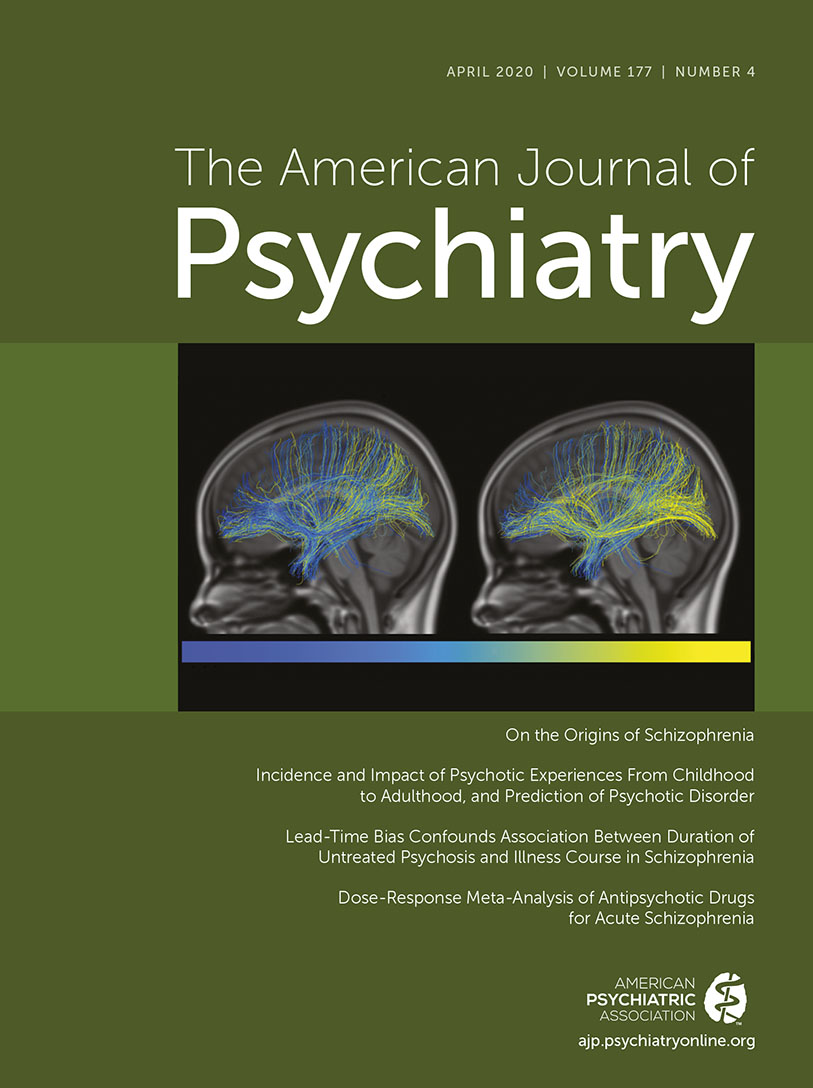Are Visual Memory Deficits in Recent-Onset Psychosis Degenerative? Response to Smucny et al.
to the editor: Smucny and colleagues present longitudinal data on the 1-year time course of visual memory deficits in a sample of patients with recent-onset (<2 years from the first episode) schizophrenia spectrum disorders or psychotic bipolar disorder compared with control subjects. They show that deficits in visual memory remain stable in both patients and control subjects at 1-year follow-up. Although Smucny et al.’s results appear to be in contrast with our results (1), where we demonstrated increasing verbal memory deficits in patients with both affective and nonaffective psychoses, there are important methodological differences between these two studies.
First, these two studies use different measures of memory ability. Smucny et al. used the Relational and Item-Specific Encoding task, while we used the visual reproduction subtest from the Wechsler Memory Scale–Revised and the Rey Auditory Verbal Learning Test. Our findings demonstrate that different neuropsychological tests may show dissociations in terms of change over time, even when these tests measure the same broad cognitive construct. Indeed, we found declines in some, but not all, measures of memory in patients with both schizophrenia and other psychoses.
Second, duration of follow-up may be another important methodological factor to consider. The duration of follow-up in Smucny et al. was 12 months, while in our study, the average follow-up duration was more than 9 years for patients and more than 8 years for control subjects. Therefore, it is plausible, as Smucny et al. state, that cognitive deterioration following the first episode is a result of an interaction between long-term age and disease-associated processes. Smucny et al. also hypothesize that this interaction of age with illness may render individuals with psychosis in their 30s more susceptible to cognitive decline than individuals with psychosis who are teenagers or in their 20s. Indeed, our sample was more than a decade older than that of Smucny et al.
This interaction of age-associated processes with psychotic illness throughout the lifespan is plausible, yet few studies have been able to comprehensively examine this hypothesis. In another report (2), we used cross-sectional data from a case-control sample of adults with affective and nonaffective psychotic disorders to examine cognitive functioning throughout 4 decades between early and middle adulthood, finding evidence for these age-associated deviations in psychosis patients on measures of general cognitive ability and executive function. Using a similar statistical approach to reanalyze our longitudinal data (1), we also found evidence for such an interaction between age and illness throughout adulthood. Specifically, a significant group-by-age interaction on delayed visual recall in the schizophrenia group (F=5.50, p<0.005) indicates a difference in the progression of visual memory impairment in schizophrenia throughout the life course. Importantly, however, detailed inspection of this cognitive course revealed that this age-associated increase in deviation in visual memory begins only around age 40. Together, these findings suggest a need for studies that are able to comprehensively examine the cognitive course of psychosis patients relative to control subjects throughout the lifespan, because cognitive decline may be characterized by slow and gradual age-associated processes that remain undetected when using short follow-ups in younger samples.
1 : Cognitive change in schizophrenia and other psychoses in the decade following the first episode. Am J Psychiatry 2019; 176:811–819Link, Google Scholar
2 : Cognitive impairment from early to middle adulthood in patients with affective and nonaffective psychotic disorders. Psychol Med 2020; 50:48–57Crossref, Medline, Google Scholar



